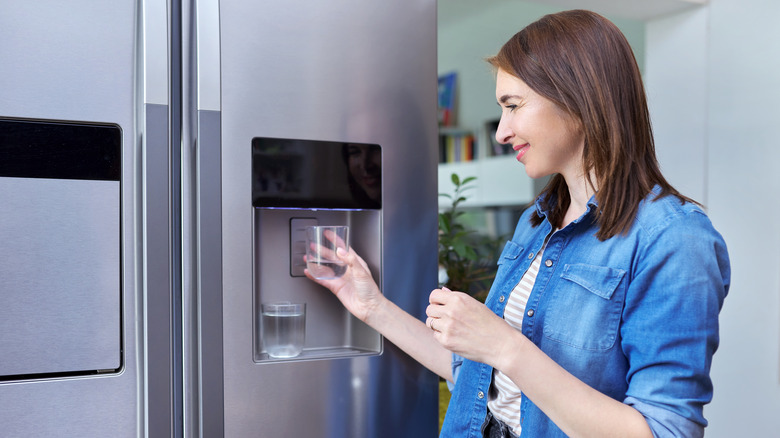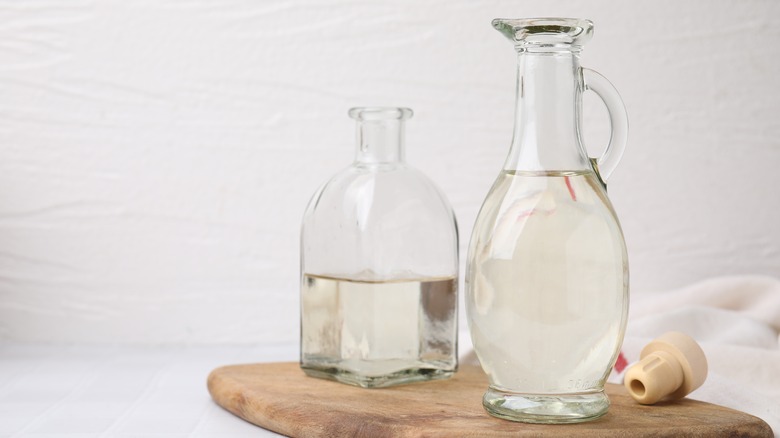The Best Way To Clean Your Fridge's Water Dispenser
Getting a nice, crisp glass of cool water from your refrigerator's water dispenser can feel like nirvana when you're thirsty. It can turn sour very quickly, though, if there's a bunch of nasty gunk floating in your water glass. Fortunately, it's easy to clean your fridge's water dispenser without needing to buy expensive cleaners or hire professional help. All you need is a simple pantry staple that can clean almost your entire kitchen.
The key to a squeaky clean water dispenser is distilled white vinegar. Vinegar can be used to clean almost anything, from cutting boards to water lines. Simply turn off your fridge's water, then find the water line to the dispenser. There should be a screw that holds it in place; remove it and disconnect the line, then use a funnel to pour in a few cups of vinegar. The vinegar will go down the line to the fridge's reservoir, where it will break down all the nastiness that builds up over time. Let it sit for up to 10 minutes, then activate the dispenser to release the vinegar into a bowl. Repeat as necessary until it comes out clean.
After the line and reservoir are clean, use a toothbrush or sponge soaked in vinegar to scrub the nozzle for the dispenser. Be thorough and scrub it until all the yuck is gone. Once everything is clean, reconnect your water line, turn the water back on, and run the water for a few minutes to rinse the line.
Take care with cleaning chemicals
While you're using vinegar to clean the dirtiest spots in your kitchen, remember that you are still using a cleaning chemical, no matter how mild it might seem in comparison to others. Always rinse well immediately after cleaning with vinegar, especially when cleaning copper items like a fridge's tubing. It shouldn't be harmful in the short term, but prolonged exposure can corrode and damage copper, so don't skip rinsing.
The most important part of handling cleaning chemicals is to almost never mix them, and that goes for vinegar as much as many other common cleaners. Bleach and vinegar combined can release lethal chlorine gas, so it's never safe to mix them in any amounts. You might be tempted to mix baking soda with your vinegar to let the fizzy reaction break up stubborn grime, but think again. While this combination might not represent the same major health hazard of mixing bleach and vinegar, it's not exactly the best, either. Not only does the basic baking soda neutralize the acidic vinegar, but the two together release carbon dioxide. In some cases, if you put enough of these two together in an enclosed space like the dispenser's reservoir, the gas can expand and cause it to rupture.

